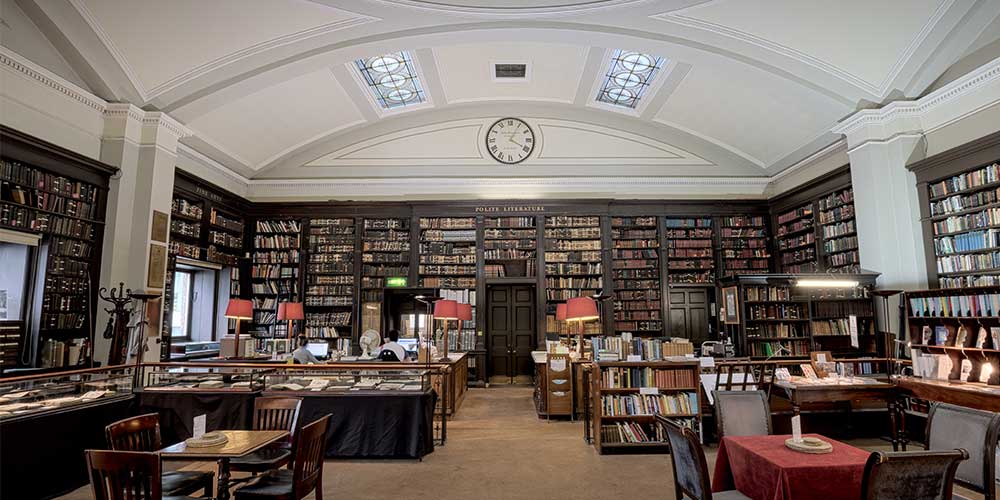Contents
- Why study history?
- I want to study history. Where do I start?
- How to study history as a hobby.
- Which course is best for history?
- Classics vs history
- Where to study history
- Is a history degree worth it in the UK?
History is a popular course to study. According to the Higher Education Statistics Agency (HESA), almost 86,000 students were enrolled in Historical, Philosophical and Religious Studies higher education courses in the academic year ending in 2021. If you’re interested in studying history, you’ll need to know which course to apply for and decide which university will be the best fit for you. From Classics to Egyptology, to the Romans and Stalin, there are hundreds of courses to choose from. Read our expert guide on what to consider when choosing which UK history courses are the best for you.
Why study history?
If we had to pick and explain one skill which can be improved by studying history, it would be critical thinking. 🤔
Outside of the UK, people don’t always see the importance of studying history (unless you want to be a history teacher 🧑🏫); however, in the UK, history is considered a desirable subject by employers. The reason that so many employers value history is that the subject teaches you to really analyse sources in a way which improves critical thinking skills.
Critical thinking is one of the most important skills for industries like journalism, politics, publishing, heritage and many more. This is one of the reasons why history graduates are so in demand. If you are able to analyse knowledge and translate it into theory, odds are you can write reports, analyse data and think outside the box – skills which most employers are looking for from their candidates. ✅
Employability aside, it is the study of history that allows us to better understand our own society and the world in which we live. By studying historical societies, we, both as individuals and a community, are given a platform from which to reflect on our own world. After all, it was the study of historical societies which sparked the French postmodern school of thought which developed our understanding of gender and the concept of social constructs.
Events such as Black history Month and Holocaust Memorial Day are prime examples of how history is still important and relevant to understanding the modern world in which we live (through the mistakes and atrocities of the past). Arguably, learning about the atrocities (and achievements) of human history is one of the ways in which we learn our values, which leads to us becoming good people.
I want to study history- where do I start?
If you are considering history at university then it would make sense to choose the right A Levels. As history is a highly-regarded and sought-after course, universities can be quite selective.
Consequently, they want candidates to have both strong grades and relevant A Level subjects. As well as choosing history A Level, English Literature is considered to be an important A Level for people wanting to study history. Through studying English Literature, you are exposed to over 400 years of books, plays and poems – naturally, this strengthens your historical understanding and intrigue!
How to study history as a hobby
If you are thinking about how to study history as a hobby, we would suggest that you start by picking up some books that catch your interest. Perhaps there is a specific time period or subject that you’re fascinated by? If so, start there. You can choose either a fiction or non-fiction book as the starting step to developing history as a hobby is sparking curiosity and intrigue.
If you are interested in history, you might want to get a subscription to a history magazine or even just do some research at home. Fun tip: research can just be searching up something historical on YouTube! The internet is filled with amazing resources to help you engage with history – even Horrible Histories!
Which course is best for history?
There are specialist courses from the history or Art to Ancient history – even history of Science. It’s important that you choose the right history university courses for your interests – the worst thing would be for you to dedicate three years of your life to a subject that doesn’t make you happy or give you fulfilment in life.
If you want to be super advanced about your selection, you can start looking at the different modules that different history university courses offer. For example, if you are interested in taking a module in Egyptology then perhaps Lancaster University is not the best place to pick as they don’t offer any modules in Egyptology. However, if you are interested in the history of violence, or the history of witchcraft, then Lancaster University might be the right choice as they offer modules in both of those areas of history.
If you are interested in studying Ancient Egypt, the University of Cambridge offers an entire degree in Egyptology in their Department for Archaeology.
History is so broad and varied that it’s important to research before choosing a course. Universities offer history courses from pretty much the beginning of time to yesterday – do your own research and discover your passion.
Classics vs. history
There is a huge war raging between Classicists and Historians as to which of the subjects is the best. 🏛 📜Classicists will argue that their area of historical focus, Classics – predominantly ancient Greek and Roman civilisation – , is the foundations of culture, politics and ideology of the western world.
Historians, on the other hand, will argue that Classics doesn’t give you enough historical scope and that their sources are mostly crumbling fragments of papyrus which, arguably, aren’t the most exhilarating.
Both Classics and history are highly regarded; however, Classics probably has the edge as it’s considered to be the harder of the two subjects. Whilst there is a lot of overlap between history and Classics the two subjects are considered to be distinctly different. They’re often in separate departments at universities.
One of the biggest difficulties with Classics is that you usually have to study both Latin and Ancient Greek (one to an advanced level). This means that Classics is usually inaccessible if you didn’t go to a private school. Having said this, there is a drive to bring Latin back into state education.
Where to study history
The two big choices you need to make are what area of history to choose and where to study history. The top universities for history are often the ones which are hardest to get into.
According to the Complete University Guide (university ranking history), the best place to study history in the UK is Cambridge. Whilst Cambridge and Oxford often battle it out for the top spot, Cambridge is currently ranked as the best UK university. As we all know, getting into Oxbridge can be hard and the Oxbridge application process can be gruelling.
The top Universities for history are:
- Cambridge – naturally🥇
- Oxford 🥈
- St Andrews 🥉
- LSE (London School of Economics)
- Durham
- UCL (University College London)
- Glasgow
- Warwick
- Edinburgh
- KCL (King’s College London)
In the UK, university applications are done through UCAS and the course code for applying to study history is V100.
Whilst it can be tempting to believe that you should only apply to the best history departments, don’t forget that there are 90 universities that offer history courses in the UK. It’s important that you consider your options carefully and choose the one that will be best for you. 🎓
It’s also important to remember that history at university is not always the only way to engage with the subject. There are other ways to engage with history on a professional level without necessarily needing to follow the rigid academic route.
Is a history degree worth it?
With the increase of online education, many people are asking whether university is still worthwhile. 🤷♀️ There are a growing number of home study history courses – the top ones probably being with the Open University.
At GoStudent we believe that it’s really important to decide whether university is the right option for you before applying.
There is a big discussion about whether apprentices are a better option than university. Most people would suggest university; however, apprenticeships have lots of benefits. Whilst university teaches you all about the theory of history and the practice of historical analysis, an apprenticeship can give you hands-on work experience in the heritage sector. This allows you all of the joys of engaging with the exciting world of history without having to spend years of your life and tens of thousands of pounds on studying at a university 💰 – in fact, you get paid to do an apprenticeship!
There are a number of excellent history-related apprenticeships from Museum Technician to Historical Environment Advisor which are worth considering before deciding on going to university.
Realistically, if you want to work as a museum curator or high-level specialist in any form of history, you need to complete postgraduate studies and that can mean a master’s, a PhD or an alternative postgraduate qualification. However, university is only one option and not always the most important one.
Hopefully this article has helped you understand the importance of history as a subject as well as the breadth, diversity and variety of UK history courses, whether that be an apprenticeship or an academic degree at one of the top universities for history.
If you would like to know more about things like how to study for a history test or whether you can go to university without A Levels, you can read through our comprehensive expert posts to learn more!










